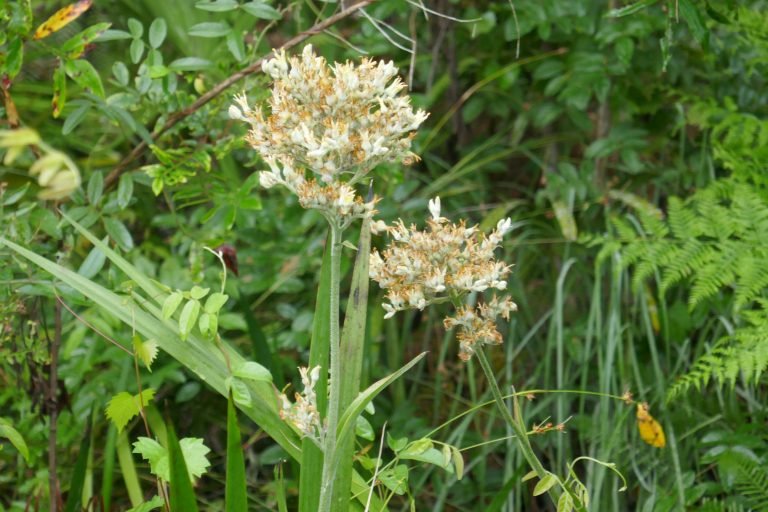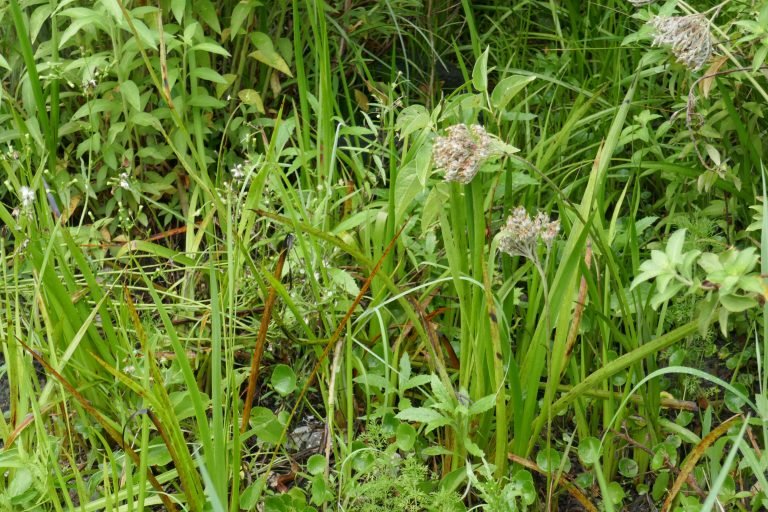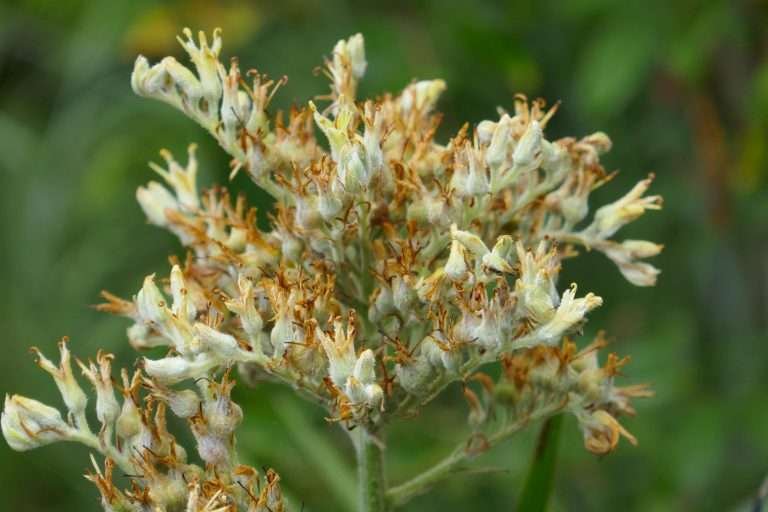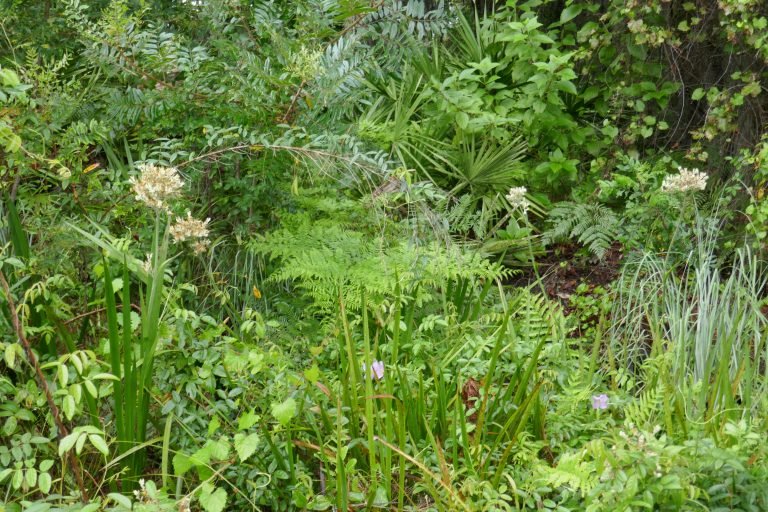
Lachnanthes caroliana
(Carolina Redroot)

Common Names, Latin Name, and Family
Its common names are Carolina redroot and paint root.
Its Latin name is Lachnanthes caroliana.
Synonyms include: Gyrotheca tinctoria, Gyrotheca tinctorium, Lachnanthes caroliniana, Lachnanthes tinctoria, and Lachnanthes tinctorium.
Carolina redroot is in the Haemodoraceae, or bloodwort, family.
Form
Carolina redroot is a perennial that grows to a height of about 3 feet with characteristics much like an iris.
Leaves
The leaves are flat and sword shaped much like iris leaves. The roots and rhizomes produce a red sap when injured.

Flowers
The flowers are yellowish brown in color and have three petals. They are born in terminal clusters.
Blooms appear in the spring, summer and fall.

Habitat
Carolina redroot occurs naturally in swamps, bogs, riparian areas, swales, wet ditches, wet prairies, and wet forests.
Native Range
In Florida it is found naturally occurring in almost every county.
It is native to the following states: AL, CT, DE, FL, GA, LA, MA, MD, MS, NC, NJ, NY, RI, SC, TN, and VA.
Landscape Use
It is an perennial that likes full sun to part shade with consistently moist soil. It is a good choice for problem wet areas.
Be sure to plant it in large masses so that it doesn’t get lost in the landscape.
If you are growing it for wildlife use this is especially important to provide enough flower nectar, and seeds, for your wildlife visitors.
Wildlife Use
The flowers are a nectar source for butterflies and bees.
The seeds are a favorite of sandhill cranes and other birds that live in wetlands and swamps.
Propagation
Small plants, and rhizomes, of Carolina redroot can be easily transplanted.
It can also be grown from seed, but the seeds do need 90 days of cold stratification.

